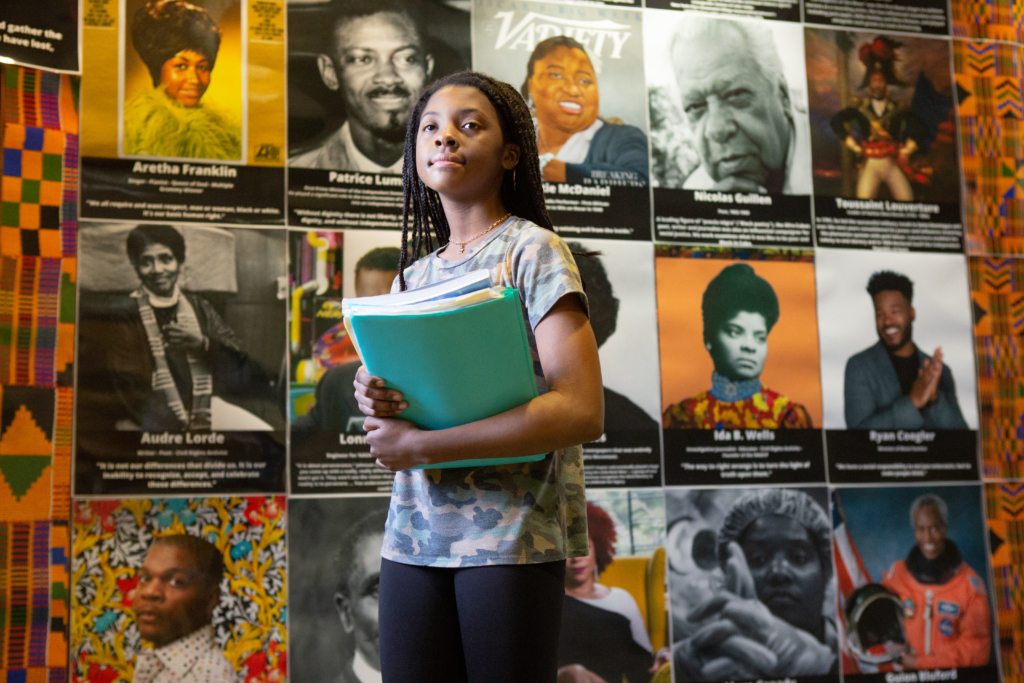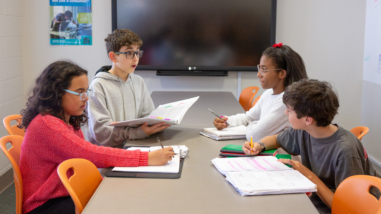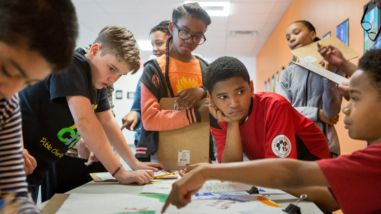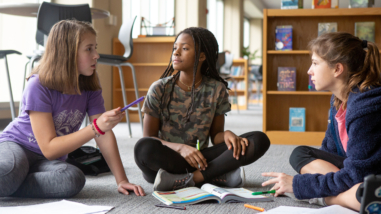Our approach to systemic racism in Open Education

The events of this year and the killings of Ahmaud Arbery, Breonna Taylor, and George Floyd have impacted many of us in deeply personal ways. As a Black woman, I often wonder how to show up as my authentic self and use what power I have to undo systemic racism. At the Hewlett Foundation, I do not feel alone in this work. With a renewed focus on racial equity, the foundation has been taking steps to address systemic racism. This includes looking back at all of our grantmaking strategies to ensure that our investments address root causes of racial injustice. Through this process, we’ve recognized that there is more we can be doing, particularly through our work in open education.
Our Open Education strategy is about the vision that every learner should have access to the knowledge and information that they need to learn. Open education goes beyond a focus on resources and includes practices, policies, and research to create meaningful and inclusive educational experiences for learners. Nearly two decades of work in this space have made it clear that access alone is not a guarantor of racial equity for learners. Instead, learners should be supported and encouraged as sensemakers and creators of their identities and their communities.
With this broader vision in mind, we updated our Open Education strategy earlier this year. Looking back on lessons learned through our grants, we have come to recognize that the real potential in open education comes from the creativity that educators and students bring in the creation and personalization of resources—the care, time, and attention they give to collaboratively building knowledge. To support these relationships and develop the conditions, incentives, and policies for effective use of open educational resources (OER), our strategy prioritizes deeper partnerships with school districts and postsecondary institutions. This work is highly contextual, and we are enthusiastic to learn how open educational resources and practices are taken up in different communities around the world. It also provides an opportunity for us to engage a broad diversity of scholars, institutions, and perspectives in shaping the field.
We have begun developing our approach for learning how to support this nuanced work, and are creating plans to build a strong evidence base for these new directions and clarify opportunities for collaboration and sharing with the field. Through our initial conversations about this agenda with practitioners and researchers, it has become clear that the new strategy had not gone far enough to demonstrate how open education could be an asset for equity and social justice. Our work in open education needs to do better in acknowledging and addressing the injustices in America’s education systems that have long harmed Black and brown students. As a global field, we must actively work to ensure inclusive and equitable learning in countries and communities around the world.
Realizing the potential of open education is only going to be possible to the extent that it roots out structural racism. We must be more ambitious about dismantling racist policies, practices, and ideas through our work. We also have to come to terms with how our own investments may have perpetuated or exacerbated inequities over the years by privileging the legal and the technical over the relational, by prioritizing the creation of materials over the development of people, by allowing ourselves to accept standards aligned as synonymous with high quality, and by offering greater and more consistent funding to white-led organizations and elite higher education institutions in the global North. I’m sure there are more ways we can explore our own role in these inequities and would welcome thoughts from our partners in the field on how to learn more about those.
We have a lot of work to do, and we are identifying new ways to deepen our practices every day. For instance, in our partnerships with school systems, we need to see not just that OER are used, but also that open educational resources and practices advance racial equity and social justice. With respect to content development and educator capacity, the programs we fund will be deliberately anti-racist, inclusive, and responsive in their design and approach. By this, we mean that learning materials for students and educators need to include perspectives, stories, histories, and personal experiences from the people of color and Indigenous communities. Beyond materials, we will support educators to advocate for the liberties and rights of learners from these communities.
As we consider new partnerships in open education, we will be curious to discover:
- How are knowledge, ideas, and practices from Black and Indigenous communities represented?
- How is racism addressed in teaching and learning for educators and students?
- How are authors of color involved and given power in creating materials for students and teachers?
- In what ways does student and community voice drive design, revision, and implementation of materials and instruction?
- What guidance do educators receive to customize lessons for their local context?
- How and when do learners experience agency and joy?
As a starting point in taking up these kinds of questions, we will create opportunities for educators to challenge inequities that are barriers to inclusive practices and participation. We will support organizations focused on open education in building their capacity to do more of this work. I see this as a learning journey in partnership with the field and an opportunity to collaborate toward a vision that gives greater purpose to our work in open education. I also hope we can enter this work with humility, openness to learning, and honesty with each other about how we are making progress for learners from all communities.



